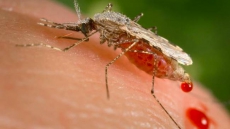HC, the active ingredient in marijuana, acts on the body's endocannabinoid system, which is part of the reproductive tissues of both men and women - Dr Sara Ilnitsky
The Canadian Press Men and women who smoke marijuana could be adding to their infertility woes if they are already struggling to start a family, says an obstetrician-gynecologist who is calling for more research into reproductive aspects of the recreational drug that may be increasingly used in Canada since it was legalized. Dr. Sara Ilnitsky, who practises at a fertility clinic in London, Ont., said some studies suggest that changes in ovulation patterns and reduced sperm motility are associated with smoking cannabis and could compound the frustrations of a couple trying to conceive. Ilnitsky and co-author Dr. Stan Van Uum, an endocrinologist in the same city, have outlined key points about marijuana and fertility in Monday's publication of the Canadian Medical Association Journal.
THC, the active ingredient in marijuana, acts on the body's endocannabinoid system, which is part of the reproductive tissues of both men and women, Ilnitsky said. She adds, however, that research suggesting the drug may delay or inhibit ovulation and lower sperm counts is limited and based on self-reported use of the drug that is taken at varying doses. A direct measure of the effects of smoking pot is possible with men by testing their semen quality, but it's "extraordinarily difficult" to gauge the potential impact on women, she said. "Our best evidence will probably come from men and the best way to look at it would be to look at a cohort of men who have been smoking marijuana at a fairly predictable frequency so we know how much they're getting and how often, which is hard to know because there's different concentrations and different strains," she said.
The largest clinical study, reported in the American Journal of Epidemiology in 2015, recruited about 1,200 Danish men between the ages 18 and 25, who provided semen samples and answered a questionnaire about their lifestyle and use of marijuana and other recreational drugs. A total of 45 per cent of them reported they had smoked pot within the last three months, according to the study that found a 28 per cent reduction in sperm concentration in those who used the drug more than once a week. A 2007 study in the Journal of Women's Health involving 201 participants suggested ovulation was delayed by two days for frequent marijuana smokers versus 3.5 days for women who did not use the drug frequently, a finding Ilnitsky called interesting but counterintuitive. However, it's not possible to know from such studies whether other lifestyle factors, including cigarette smoking, alcohol and diet may also play a role when it comes to infertility. But couples who are having difficulty conceiving should avoid using cannabis as they consider other lifestyle changes toward good health, she said.
"If someone already has some underlying fertility problem, if you're then also reducing the amount of sperm available or changing when the egg is being released that could further impact your ability to get pregnant." Overall, large studies on whether marijuana use is linked to reduced fertility are needed for both men and women, Ilnitsky said. "We are uniquely positioned in Canada right now to do research on this subject and some prioritization of funding would be great." Sarah Kimmins, a researcher in male fertility at the Centre for Research in Reproduction and Development at McGill University in Montreal, said multiple issues related to infertility, many still unknown, appear to increasingly involve men, and marijuana use may be a contributing factor. "I think there's enough evidence now where you can say, 'Listen, cannabis is bad for your sperm,'" said Kimmins, the Canada research chair in epigenetics, reproduction and development and a member of the Canadian Fertility and Andrology Society.
"The consensus for people working in fertility and in andrology is that the effects of cannabis are primarily negative in terms of sperm health and fertility so we know use of cannabis recreationally is associated with about a 30 per cent reduction in sperm number and also a decline in sperm function," she said. Kimmins, too, called for more research into marijuana's potential effects on fertility and said that should have been considered before the drug was legalized last October. "This should have been done so we can develop better policy that's based on scientific evidence. And instead they've gone ahead and legalized it without knowing all the facts and I think that's a pretty dangerous way to conduct ourselves in this country in terms of access to potentially dangerous chemicals."




